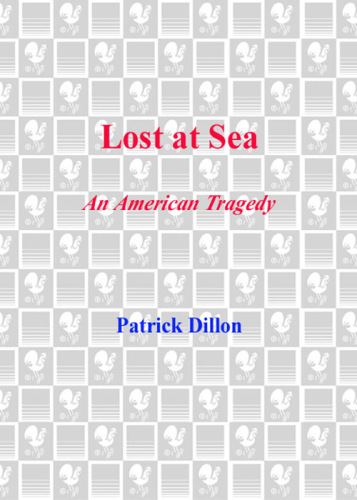
Lost at Sea
An American tragedy
کتاب های مرتبط
- اطلاعات
- نقد و بررسی
- دیدگاه کاربران
نقد و بررسی

November 2, 1998
The Wall Street Journal recently noted that last year "commercial fishing lost its place as the most dangerous occupation." If so, part of the reason must be traced back 15 years to February 14, 1983, when 14 men from the town of Anacortes, Wash., were lost in the Bering Sea. Sailing on the Americus and Altair, two of the most high-tech crabbing vessels of the time, and confident of fairly calm waters, they disappeared without even an SOS. Pulitzer Prize-winning editor and columnist Dillon brings his perceptive journalism skills to reconstructing the lives of the fishermen and their families and motivations--from the need to strike out for more dangerous fishing grounds, because those closer to home were depleted, to simple greed. The residents of Anacortes clearly knew the dangers--an obelisk in the harbor is inscribed with 96 names of fishermen lost over the last 50 years, more than three times the number listed on the memorial to casualties of WWII, Korea and Vietnam. Dillon spent time with the families and followed both the subsequent investigation and the efforts to enact and enforce regulations. His prose is more poetic than incisive: At a basketball game at the high school, "the news came in like a draft under the door. When it reached the bleachers, each row stirred in succession, people bent like grass.... They stood, stunned, their faces frozen...trying to conceal their terror." This is a story of individuals, but it is also the story of an old, traditional industry pushed farther and farther offshore by heavy demand from top restaurants paying high prices. Author tour to the Northwest and Alaska.

November 15, 1998
In this chronicle of the worst commercial fishing disaster in American history, Dillon (former San Jose Mercury News editor and columnist) takes the reader to the Bering Sea and the hazardous waters off Alaska's Aleutian Islands, where men dare the elements in the yearly three-month harvest of Alaskan king crab. On February 14, 1983, the Americus and the Altair, two modern, well-equipped boats led by expert captains, disappeared without a radio call for help. How this tragedy happened and the subsequent two-year investigation form the core of the book. Dillon describes the rise of the rich and dangerous king crab industry in the 1960s, the unregulated working conditions, and the dangers of the Bering Sea that combined to maim and kill crew members every year. He carefully fills in the backgrounds of the two captains and the construction of their vessels; the investigation of the disaster forms the book's last third. Comparable to William W. Warner's Distant Water: The Fate of the North Atlantic Fisherman (1984, o.p.), this is recommended for public libraries. [Previewed in Prepub Alert, LJ 4/1/98.]--Harold N. Boyer, Florence Cty. Lib., SC

November 1, 1998
The town of Anacortes, Washington, has a monument to a hundred of its men lost at sea, 14 of them in 1983. With acute prose, Dillon reconstructs the sinkings and the fatalism of the fishing culture--symbolized by that monument. The lure for the men of Anacortes was the fantastically lucrative king crab; the danger was the king crab's habitat in the Bering Sea, where notorious storms sank several fishing boats every year. (Dillon's stint as a deckhand provides vivid background for the tempests of that sea and the danger of the work.) So Anacortes' safety-first fishing fleet sortied for the 1983 season, and after the capsized hull of one boat was found (a second simply vanished), the Coast Guard investigation focused on the possibility the boats were overloaded. Dramatizing the inquiry well, Dillon switches to a policy issue, the then-unregulated condition of the fishing fleet, but the compelling portions are the sea story and the effects of tragedy on a small town. ((Reviewed November 1, 1998))(Reprinted with permission of Booklist, copyright 1998, American Library Association.)

























دیدگاه کاربران